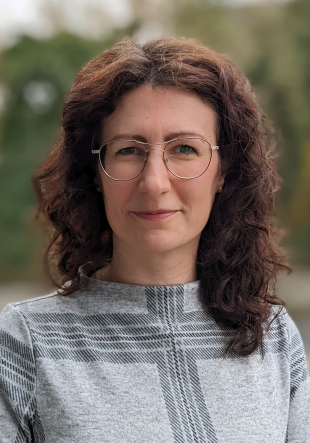Mentoring at Paderborn University
Mentoring is an effective instrument of academic personnel development that has proven very successful in promoting qualified women.
The aim of the Paderborn mentoring programme is to support female doctoral candidates during their PhD and to build a network across disciplines. The programme makes it possible to get to know, concretise and carefully examine the options of a career in science and academia with the help of an experienced mentor. It imparts knowledge about professional success strategies and supports professional networking.
In a direct and personal one-to-one relationship with an experienced female professor (mentor), the doctoral candidates (mentees) receive individual and practical support on their career path: the mentors advise them on career planning and provide insights into their own professional decisions as well as valuable experience. They explain the unwritten "rules of the game" of academia and facilitate access to professional and specialist networks.
Target group

The mentoring programme is aimed at female doctoral candidates from all faculties at Paderborn University, regardless of the topic and timeframe of their doctorate. We recommend participating in the programme when you have already been working on your doctorate for one to two years and have gained some experience with research and within your scientific community.
Motivation and commitment to the programme as well as curiosity for an academic career or a leadership position in science and research are important for participation.
Applications and timetable
Interested applicants can submit their applications by 1 July each year. The new group always starts in autumn. The dates can be viewed and noted in the timetable.
Up to 14 doctoral candidates can be accepted onto the programme each year and you can apply with a written application followed by an interview. A participation fee of 100 euros is charged for participation in the programme. Please submit the completed application form and a curriculum vitae in tabular form.
Documents for download:
Benefits of mentoring
"I found the programme very enriching. The mixture of intensive discussions with a mentor I chose myself from another university, the workshops on offer, shared writing time and the exchange with my fellow mentees definitely helped me progress and strengthened my decision to stay in academia."
(Mentee, first year)
-
new impulses and ideas for a career in science or science-related fields
-
concretisation of individual career and future planning
-
reflection on personal and professional skills and development opportunities
-
insider knowledge about professional success strategies
-
expansion of professional contacts and long-term networks
"My mentee asked very specific questions that made me reflect on my own career and behaviour. I found that very valuable. And it also helped me to convey what the findings from my career and my approaches can mean in a more generalised view. These now also flow into the mentoring of other doctoral candidates."
(Mentor, year 12)
-
deepening personal interviewing and counselling skills
-
reflection on own professional and methodological working methods and leadership skills
-
opportunity to reflect on one's own career in dialogue with an independent doctoral candidate
-
expansion of the professional network
From the mentees' perspective:
"The faculty and university benefit from participation in the mentoring programme insofar as they offer young, ambitious female academics the opportunity to further their individual career-relevant skills and to network on an interdisciplinary and inter-university level, thus also becoming a figurehead for the faculty or university. In addition, the mentoring programme contributes significantly to the successful completion of the doctoral process."
(Mentee, year 12)
-
efficient use of the previously insufficiently tapped performance potential of qualified female scientists
-
individual preparation of women for university leadership roles
-
medium to long-term increase in the proportion of women in qualification levels and professorships as well as in management positions
-
promoting interdisciplinary networking and establishing a supportive culture in which expertise is shared
-
recruitment and long-term retention of qualified female employees at Paderborn University
News and dates
Social Media







